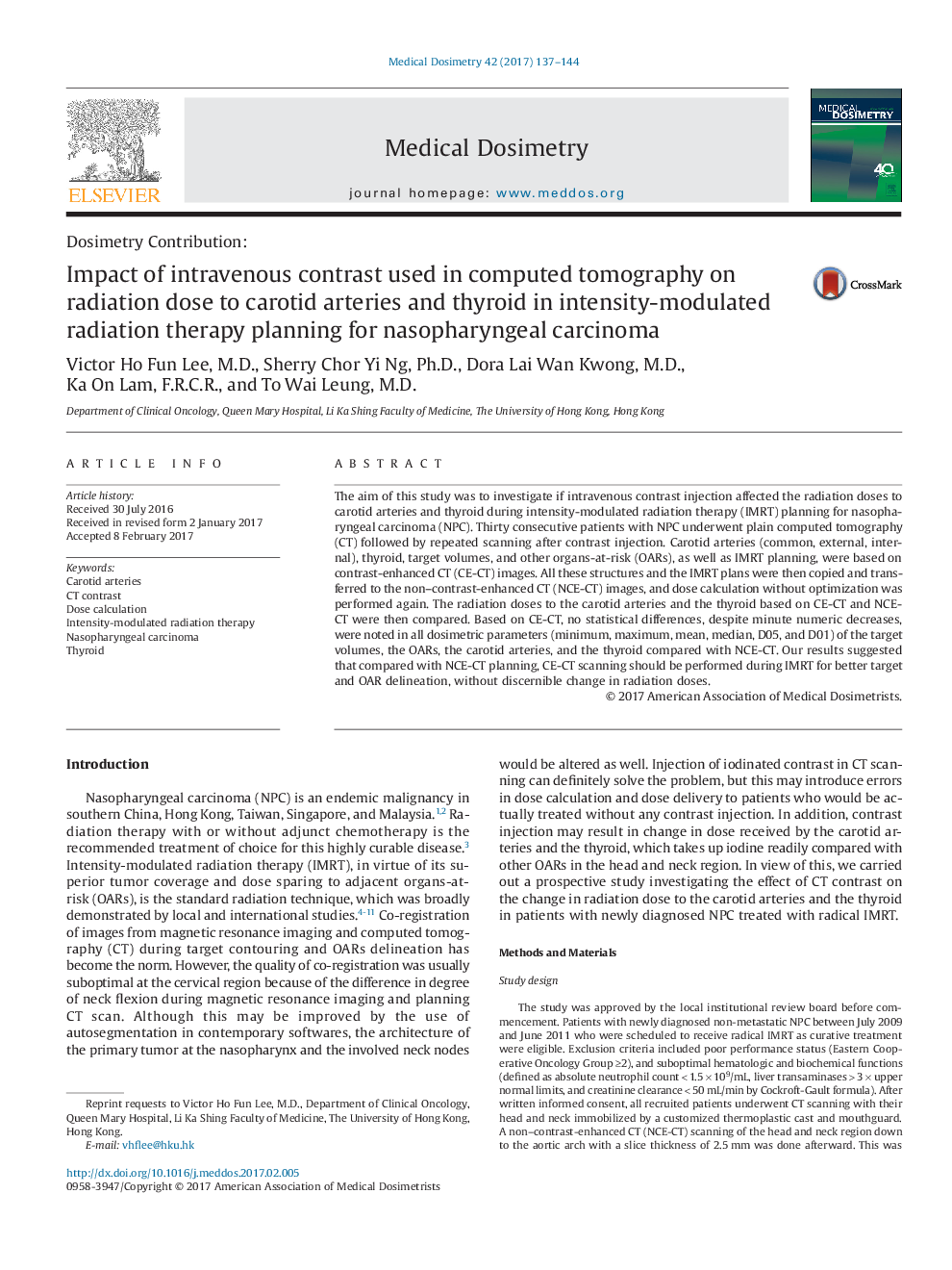| Article ID | Journal | Published Year | Pages | File Type |
|---|---|---|---|---|
| 5498170 | Medical Dosimetry | 2017 | 8 Pages |
Abstract
The aim of this study was to investigate if intravenous contrast injection affected the radiation doses to carotid arteries and thyroid during intensity-modulated radiation therapy (IMRT) planning for nasopharyngeal carcinoma (NPC). Thirty consecutive patients with NPC underwent plain computed tomography (CT) followed by repeated scanning after contrast injection. Carotid arteries (common, external, internal), thyroid, target volumes, and other organs-at-risk (OARs), as well as IMRT planning, were based on contrast-enhanced CT (CE-CT) images. All these structures and the IMRT plans were then copied and transferred to the non-contrast-enhanced CT (NCE-CT) images, and dose calculation without optimization was performed again. The radiation doses to the carotid arteries and the thyroid based on CE-CT and NCE-CT were then compared. Based on CE-CT, no statistical differences, despite minute numeric decreases, were noted in all dosimetric parameters (minimum, maximum, mean, median, D05, and D01) of the target volumes, the OARs, the carotid arteries, and the thyroid compared with NCE-CT. Our results suggested that compared with NCE-CT planning, CE-CT scanning should be performed during IMRT for better target and OAR delineation, without discernible change in radiation doses.
Keywords
Related Topics
Physical Sciences and Engineering
Physics and Astronomy
Radiation
Authors
Victor Ho Fun M.D., Sherry Chor Yi Ph.D., Dora Lai Wan M.D., Ka On F.R.C.R., To Wai M.D.,
